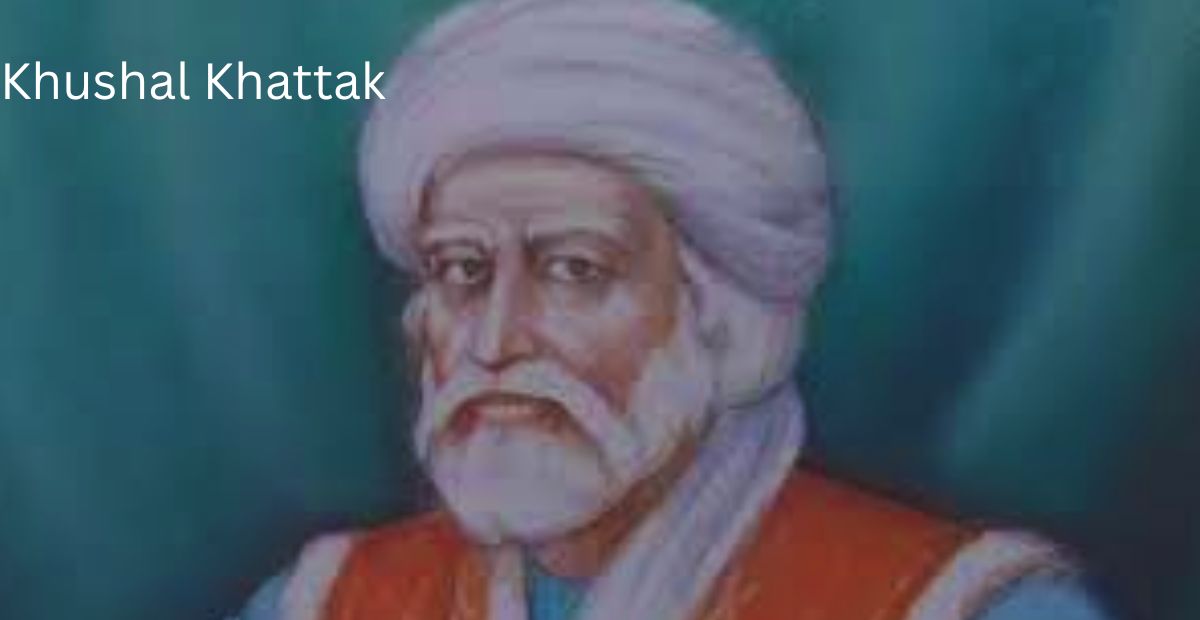Khushal Khan Khattak (1613 – 20 February 1689), also known as Khushal Baba, was a towering 17th-century Pashtun figure revered as a poet, warrior, philosopher, tribal chief, and visionary. Born into the influential Khattak tribe in the region now known as Khyber Pakhtunkhwa, Pakistan, Khushal’s life was a complex tapestry of loyalty, rebellion, cultural pride, and intellectual legacy. Regarded as the “father of Pashto literature” and the national poet of Afghanistan, Khushal’s contributions span military leadership, poetic innovation, and the ideological foundation of Pashtun nationalism.
Early Life and Background
Khushal Khan was born around 1613 in Akora, near present-day Nowshera District. He belonged to the Akor Khels, a respected branch of the Khattak tribe. His grandfather, Malik Akoray Khan, was a notable ally of the Mughal emperor Akbar, establishing the family’s prominent relationship with the Mughal Empire. Khushal’s father, Shahbaz Khan Khattak, continued that legacy as a distinguished soldier and tribal chief.
At the age of 13, Khushal first joined battle alongside his father, showing early signs of courage and leadership. Following Shahbaz Khan’s death in 1641 during conflict with the Yusufzai tribe, Mughal emperor Shah Jahan appointed Khushal as the new chief and granted him the rank of Mansabdar.
Allegiance and Rebellion Against the Mughals
Initially, Khushal was a loyal commander in the Mughal Empire, protecting the Empire’s northwestern frontiers and subduing local Pashtun tribes. However, under the reign of Aurangzeb, this relationship soured. In 1658, Aurangzeb imprisoned Khushal, viewing him as a potential threat to Mughal authority.
After spending several years in Gwalior and other fortresses, Khushal was released in 1668. Disillusioned by Mughal betrayal, Khushal began advocating for Pashtun unity and resistance. He denounced his past role in subjugating his own people and began mobilizing various Pashtun tribes including the Afridi, Mohmand, Safi, and Khattak for a united revolt.
Pashtun Revolt and Resistance
The major uprising came in 1672, triggered by the mistreatment of a Safi woman by Mughal soldiers. Khushal joined tribal leaders like Darya Khan Afridi and Aimal Khan Mohmand in a concerted rebellion. The Pashtun forces ambushed the Mughal army at the Khyber Pass, reportedly inflicting heavy casualties—some Afghan sources claim 40,000 Mughal soldiers were lost.
Although the Mughals eventually regained some control through diplomacy and military pressure, the Pashtun belt remained unstable. The revolt critically weakened Mughal authority in the northwest, paving the way for future invasions, including that of Nader Shah in the 18th century.
Literary and Intellectual Contributions
Khushal Khan was a prolific writer and poet. His literary output includes over 45,000 verses and nearly 260 books, in Pashto and Persian. His works covered diverse fields such as poetry, medicine, ethics, governance, and war.
Notable Works:
- Diwan-e-Khushhal: A collection of his poetry
- Baz-nama: A treatise on falconry
- Tibb-nama: A book on traditional medicine
- Fazl-nama: A guide on religious and social ethics
- Farrukh-nama: A dialogue between the pen and the sword
- Swat-nama and Faraq-nama: Descriptive and reflective prose
Khushal’s writing emphasized honor, courage, resistance to oppression, and Pashtun unity. His famous quote, “The very name Pashtun spells honor and glory; lacking that honor, what is the Afghan story?” continues to resonate in Pashtun culture.
Sufi Influence and Personal Beliefs
Khushal was influenced by the Sufi saint Sheikh Rahamkar (Sayyid Kastir Gul), also known as Kaka Sahib. He was trained in Islamic sciences under this spiritual mentor and considered him a moral compass. His devotion was such that he fulfilled his teacher’s wish of performing his burial rites personally.
Internal Struggles and Final Years
Despite his efforts to unite the Pashtun tribes, Khushal faced betrayal from within. His son Behram Khan, lured by Mughal promises, conspired against him. Khushal was forced to flee, seeking refuge in Tirah with the Afridis.
He died in exile on 20 February 1689 at the age of 76. His final wish was to be buried in a place untouched by Mughal influence. His tomb in Akora Khattak bears a famous inscription:
“Da Afghan Pa nang mai watarala toora, nangyalai da zamanai Khushal Khattak yam.”
(I have taken up the sword to defend Afghan honor; I am Khushal Khattak, the man of integrity of my time.)
Legacy
Khushal Khan Khattak is celebrated as:
- A national symbol of resistance in Afghanistan and among Pashtuns in Pakistan
- The founding father of Pashto literature
- A philosopher advocating for Pashtun identity, unity, and honor
Allama Iqbal, the national poet of Pakistan, admired Khushal deeply, calling him the “philosopher and physician of the Afghan nation.” Iqbal once wrote:
“He was a versatile mind… his poetry breathes the spirit of early Arabian verse: freedom, war, and honor.”
Modern Recognition
- Khushal Khan Khattak University in Karak, Khyber Pakhtunkhwa, is named in his honor.
- The Khushhal Khan Khattak Express is a passenger train service in Pakistan.
- Several literary societies and cultural organizations continue to promote his legacy through translations and research.
Conclusion
Khushal Khan Khattak remains a towering figure in Pashtun and South Asian history. As a poet, he immortalized the values of honor, resistance, and unity. As a warrior, he challenged imperial power at great personal cost. As a thinker, his ideas laid the groundwork for modern Pashtun nationalism. His legacy endures not just in verse, but in the hearts of those who cherish freedom and cultural pride.
